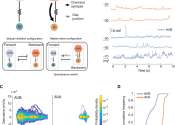Team reveals why new tuberculosis vaccine induces a stronger, longer response than the conventional vaccine
Researchers from the Butantan Institute and collaborators are developing a more potent version of the BCG vaccine that protects against tuberculosis. While the conventional immunizer reduced infection by 90% in experiments ...
Jul 3, 2024
0
0









